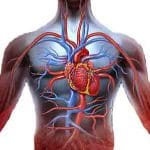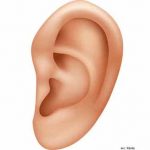Heart pacemakers and defibrillators often not affected by electromagnetic fields in everyday life
| Heart pacemakers and defibrillators are generally not affected by electromagnetic fields in everyday life, as long as they are programmed according to manufacturer recommendations. The German Society for Cardiology (DGK) and the German Society for Occupational and Environmental Medicine (DGAUM) point this out. According to the specialist societies, patients should nevertheless “exercise a certain amount of caution” when handling some everyday electrical equipment. According to a statement by the specialist societies, interference with electromagnetic fields from everyday objects is very rare in today’s common implants due to technical improvements. Depending on the study and implant, only 0.3 to 0.7 cases could be detected per 100 patient years. |
|
| Modern mobile phones and smartphones with Internet functionality represent a very low risk of interference. A safety distance of 15 cm from the implant, as recommended ten years ago, is no longer necessary due to the telephony and Internet function,” the statement states. However, pacemaker and ICD wearers should maintain a minimum distance of ten centimeters from inductive charging stations.
The permanent magnets processed in headphones or loudspeakers can, according to the specialist societies, cause disturbances in pacemakers and defibrillators in direct contact. Therefore, they should never be placed directly on the spot where the device is implanted. Patients should pass the electronic article surveillance systems in the entrance and exit areas of department stores quickly and not spend unnecessarily long periods in their magnetic field. According to the data available, metal detectors such as those used at airports do not pose a risk to implant wearers. No interactions with airplanes, trains or electric vehicles Patients are particularly concerned about whether they can safely use hybrid and electric vehicles. Here the specialist societies give the all-clear signal: no interactions with the implants could be detected in the cars. There are also no medical restrictions for travel by plane or train. |
|
| Author(s) | Source |
| hil/aerzteblatt.de | aerzteblatt.de, Aug 07 2019 (german) |
| This is a post of a scientific or business information. The information given here is checked thoroughly by “Implant-Register”. However we can´t be responsible for the content. Contact the publisher, if you have questions. You may inform us about changes of the information to improve the Register. | |
| Comments: n/a let us know |
|
Find NEWS and PUBLICATIONS here according to your interests or use the search box.









